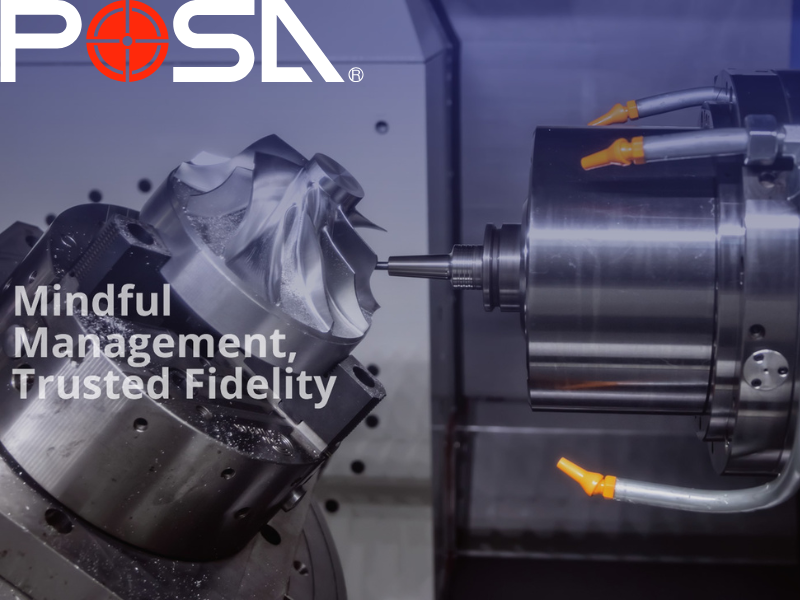

How to Choose the Right CNC Spindle for Your Machine Tool: Industry Applications and Selection Guide
How to Choose the Right CNC Spindle for Your Machine Tool: Industry Applications and Selection Guide
Choosing the right CNC spindle is essential for ensuring machining accuracy, process stability, and long-term equipment reliability. But with the wide range of applications and machine types across industries like aerospace, automotive, mold & die, and electronics, one spindle does not fit all.
This article offers a practical guide to selecting the most suitable CNC spindle—based not only on technical parameters but also on your industry’s specific machining needs.
What Makes the Spindle So Important?
The spindle is the "heart" of any CNC machine. It rotates the cutting tool (in milling and grinding) or the workpiece (in turning), directly influencing machining speed, power, torque, precision, and surface finish. A poorly selected spindle can result in:
- Inadequate cutting performance
- Excessive vibration or heat
- Reduced tool life or poor surface finish
- Increased machine downtime
Industry-Based CNC Spindle Selection
1. Aerospace Industry
- Common Parts: Turbine blades, engine housings, structural frames
- Materials: Titanium, Inconel, aerospace aluminum
- Requirements: High precision, 5-axis contouring, thermal stability
Recommended Spindle Features:
- High-speed, high-torque motorized spindles
- HSK63 or HSK100 interfaces for rigidity
- Advanced liquid cooling to manage thermal loads
- Integrated sensors for vibration and temperature monitoring
2. Automotive Industry
- Common Parts: Engine blocks, transmission cases, brake systems
- Materials: Cast iron, aluminum alloys, hardened steel
- Requirements: High productivity, moderate accuracy, robust durability
Recommended Spindle Features:
- Direct-drive or gear-driven spindles with high torque
- Spindles supporting automated tool changers (ATC)
- Long-term bearing reliability under heavy duty cycles
3. Mold & Die Manufacturing
- Common Parts: Injection molds, stamping dies, precision tools
- Materials: Tool steel, copper alloys, graphite
- Requirements: Fine surface finish, complex geometries, long cutting hours
Recommended Spindle Features:
- Ultra-high-speed spindles (20,000–40,000 RPM)
- Hybrid ceramic bearings for low runout
- Air/oil mist lubrication and temperature-controlled cooling
- HSK-E or HSK-F taper interfaces for fine precision
4. Electronics & Semiconductor
- Common Parts: Heat sinks, connectors, PCB drill holes, chip substrates
- Materials: Aluminum, plastics, copper, silicon wafers
- Requirements: Micro-machining, low vibration, extreme precision
Recommended Spindle Features:
- Micro spindles with 50,000+ RPM capability
- Minimal radial runout (<1 micron)
- Air-cooled or hybrid cooling for short-cycle production
- Direct-drive configuration to reduce backlash
5. Medical Device Manufacturing
- Common Parts: Surgical tools, implants, prosthetics
- Materials: Stainless steel, titanium, PEEK
- Requirements: Clean finish, tight tolerances, traceability
Recommended Spindle Features:
- High-speed milling spindles with exceptional balance
- Compatibility with ATC and probing systems
- Built-in temperature and load monitoring
- Cleanroom-ready design (optional)
General Selection Guidelines
Regardless of industry, here are the 5 key criteria you should always consider:
- Application Type: Milling, turning, grinding, or multi-tasking
- Material Properties: Hardness, abrasiveness, thermal expansion
- Spindle Configuration: Belt-drive, direct-drive, or built-in motor
- Performance Range: Required torque, RPM, and duty cycle
- Machine Integration: Tool interface (BT/HSK), ATC compatibility, sensor support
Why POSA MACHINERY?
POSA is a Taiwan-based spindle manufacturer with over 30 years of experience delivering custom spindle solutions for OEMs and end users across over 20 countries. Our advantages include:
- ✅ ISO 9001:2015 certified quality
- ✅ Customizable spindle specs per application
- ✅ Advanced in-house dynamic balancing and testing
- ✅ Smart spindle integration (IoT-ready)
Conclusion
Choosing the right CNC spindle is not just about speed or power—it’s about matching the right performance characteristics to your industry and application. By understanding how spindles behave under different conditions and tailoring your choice accordingly, you’ll ensure higher productivity, better part quality, and longer machine life.
Looking for expert guidance?
Contact POSA MACHINERY today to discuss your spindle requirements and discover precision solutions built for your industry.
